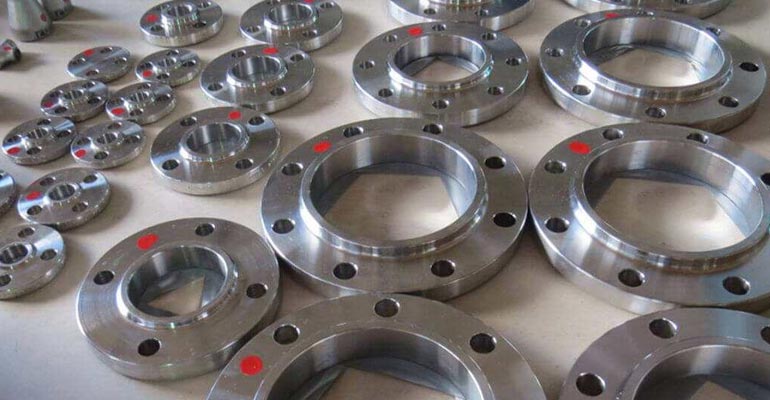Nickel Alloy
- Home
- Materials

Nickel Alloy
Nickel alloys are materials that primarily contain nickel as the base metal, combined with other elements to enhance specific properties such as strength, corrosion resistance, and high-temperature performance. Nickel alloys are used in a wide range of applications, from aerospace and chemical processing to electronics and marine environments.
Key Characteristics:
- Corrosion Resistance: Excellent resistance to oxidation, corrosion, and pitting, especially in harsh environments.
- High-Temperature Stability: Maintains strength and stability at elevated temperatures.
- Magnetic Properties: Nickel alloys can be engineered for specific magnetic properties, including non-magnetic characteristics.
- Strength and Toughness: Can be alloyed to achieve high strength and toughness.
Types of Nickel Alloys and Their Applications:
| Type | Typical Composition | Properties | Applications |
|---|---|---|---|
| Nickel-Copper Alloys | Nickel: 60%, Copper: 40% | Good resistance to seawater and acids. | Marine applications, chemical processing. |
| Nickel-Chromium Alloys | Nickel: 80%, Chromium: 20% | Excellent high-temperature strength and oxidation resistance. | Heating elements, aerospace components. |
| Nickel-Iron Alloys | Nickel: 36%, Iron: 64% | Low magnetic permeability, good thermal expansion. | Electronics, transformers, and magnetic shielding. |
| Nickel-Molybdenum Alloys | Nickel: 65%, Molybdenum: 30% | High strength and excellent corrosion resistance. | Oil and gas industry, chemical processing. |
| Nickel-Based Superalloys | Nickel: 50%-70%, with other elements like Chromium, Molybdenum, and Cobalt | Outstanding high-temperature strength and corrosion resistance. | Aerospace engines, power generation. |
Detailed Nickel Alloy Types:
-
Nickel-Copper Alloys:
- Inconel® 625: Contains nickel, chromium, and molybdenum. Known for high fatigue and thermal-fatigue strength.
- Monel® 400: Composed of nickel and copper. Exhibits excellent resistance to seawater and many acids.
-
Nickel-Chromium Alloys:
- Inconel® 600: Nickel-chromium alloy with good oxidation resistance and strength at elevated temperatures.
- Inconel® 800: Nickel-chromium-iron alloy with high strength and oxidation resistance, used in high-temperature environments.
-
Nickel-Iron Alloys:
- Kovar®: Nickel-iron alloy with low thermal expansion, used in electronic packaging and glass sealing.
-
Nickel-Molybdenum Alloys:
- Inconel® 825: Nickel-iron-chromium alloy with added molybdenum for enhanced corrosion resistance. Used in chemical processing and oil and gas applications.
-
Nickel-Based Superalloys:
- Inconel® 718: Nickel-chromium alloy with additions of molybdenum and niobium. Known for high strength and corrosion resistance at elevated temperatures.
- Nimonic® 80A: Nickel-chromium-cobalt alloy with good creep resistance and oxidation resistance. Used in gas turbines and aerospace components.
Mechanical Properties:
| Property | Typical Values |
|---|---|
| Tensile Strength | 500 - 2000 MPa, depending on the alloy and heat treatment. |
| Yield Strength | 300 - 1500 MPa |
| Hardness | Varies widely; commonly measured in Rockwell or Brinell scales. |
| Elongation | Good ductility; varies with specific alloy. |
Corrosion Resistance:
- General Corrosion: Excellent resistance to oxidation, especially in high-temperature environments.
- Pitting and Crevice Corrosion: Nickel-chromium and nickel-molybdenum alloys offer superior resistance.
- Stress Corrosion Cracking: Nickel-based superalloys are designed to resist stress corrosion cracking in harsh environments.
Heat Treatment:
- Solution Annealing: Heating to high temperatures to dissolve precipitates and then rapidly cooling to retain the alloy's structure.
- Age Hardening: Heating to a specific temperature and holding to strengthen the alloy by precipitating hardening phases.
Standards and Specifications:
- ASTM: B160 (Nickel-Copper Alloy), B165 (Nickel-Copper Alloy Tubing), B446 (Nickel-Chromium-Molybdenum Alloy).
- UNS: N02200 (Nickel 200), N04400 (Monel 400), N06600 (Inconel 600).
- ISO: ISO 9516 (Nickel Alloys - Chemical Composition), ISO 15156 (Materials for Use in H2S-Containing Environments).
Applications:
- Aerospace: Turbine blades, exhaust systems, and other high-temperature components.
- Chemical Processing: Equipment and components in aggressive chemical environments.
- Marine: Parts exposed to seawater and marine environments, such as ship components and offshore structures.
- Electronics: Magnetic shielding, electronic packaging, and components requiring precise thermal expansion characteristics.
Conclusion:
Nickel alloys are essential materials in many industries due to their superior corrosion resistance, high-temperature strength, and specific magnetic properties. They are tailored to meet the demands of extreme environments and applications where conventional materials may not perform adequately.

